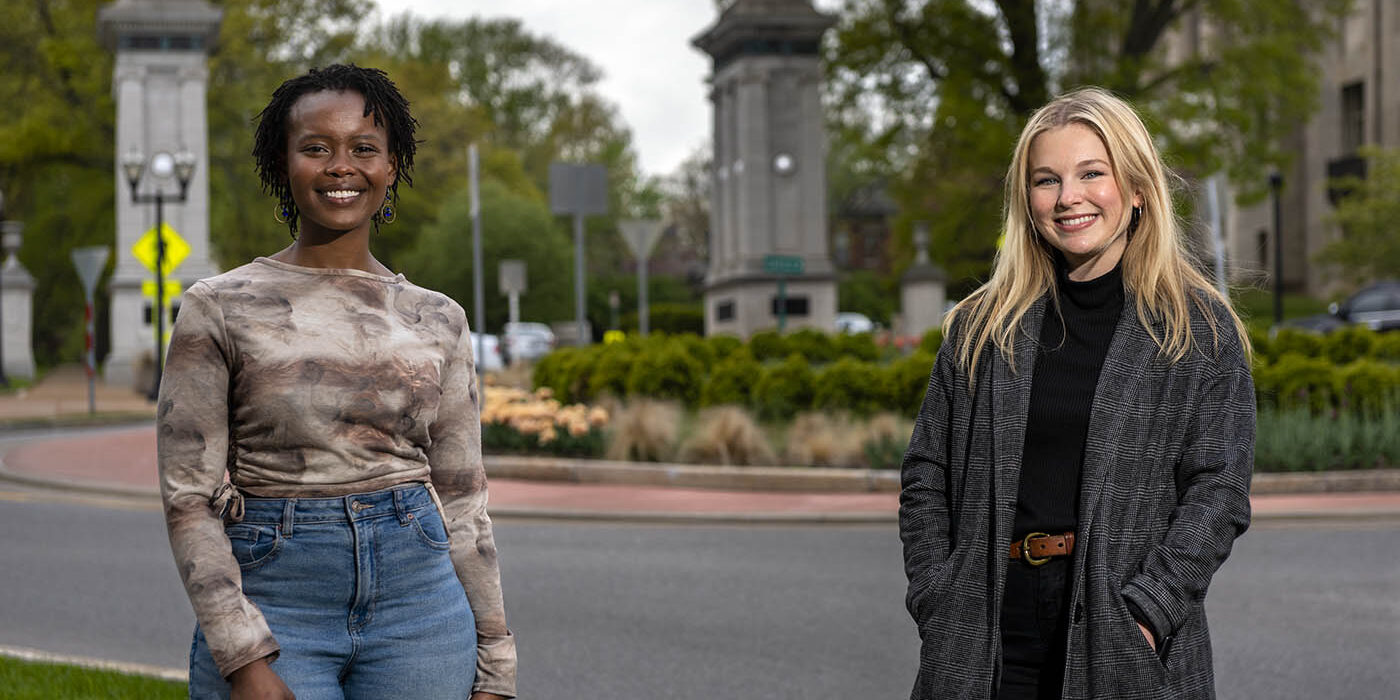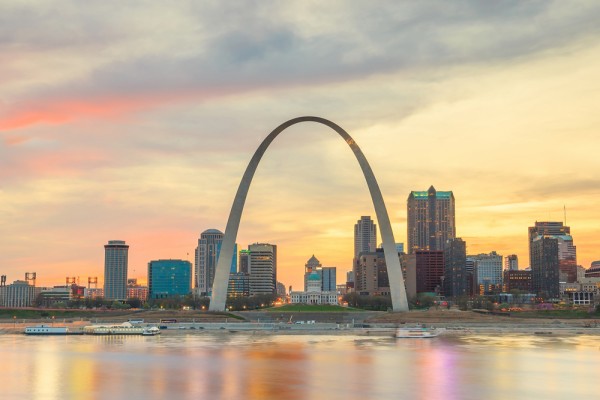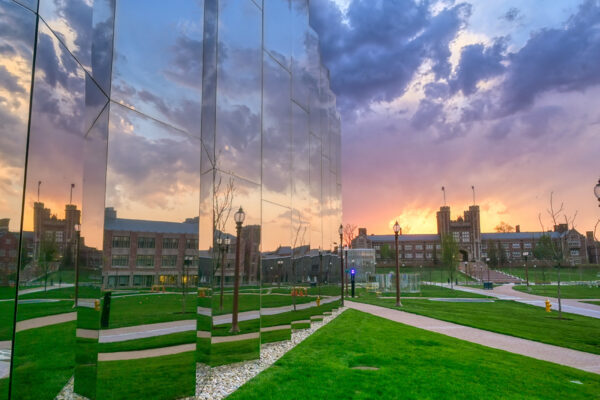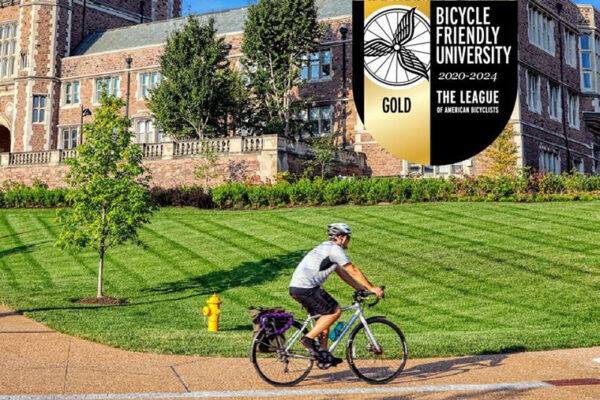Municipalities such as University City will play a vital role in President Joe Biden’s plan to halve U.S. greenhouse gas emissions by 2030. That’s why Washington University in St. Louis students are working hard to help the neighboring city of 35,000 residents meet its sustainability goals.
“Cities are so important because that’s where a lot of the work gets done,” said senior M.K. Vereen, who is set to graduate in May with degrees in environmental policy, Spanish and Latin American studies from Arts & Sciences. “But it’s not easy. There are political, financial, engineering and justice issues to consider, and not a lot of extra time or money to do everything.”
Last semester, Vereen was a student in Sustainability Exchange, a unique course bringing together students from across campus to work in interdisciplinary teams to tackle real-world sustainability challenges in the community and on campus.
Vereen and her classmates were tasked with updating the city’s strategic sustainability plan, a nearly decade-old document that addressed waste, biodiversity, water, food access, transportation and energy. Vereen tackled the energy section, having developed an interest in energy while taking RESET (Renewable Energy Student Engagement Team), another interdisciplinary class where she studied the energy grid and helped develop a strategy for St. Louis to meet SolSmart solar-ready standards.
“RESET gave me the strong foundation for understanding local energy politics as well as the engineering and financial aspects of energy,” Vereen said. “That foundation allowed me to make recommendations that were feasible and actionable.”
Vereen helped identify federal Department of Energy and Environmental Protection Agency programs and grants that would help University City’s low-income residents weatherize their homes and reduce their energy usage. She also researched energy auditing tools and recommended strategies to promote solar-ready and electric-vehicle construction.
“We had no budget, but we learned there were a lot of existing opportunities and resources available that would help the city meet its goals in a way that prioritizes environmental justice,” said Vereen, who, as an intern at the Great Rivers Environmental Law Center, had studied local environmental justice issues and wrote a green purchasing policy for Maplewood.
Jenny Wendt, senior project manager for University City’s public works department, said that Vereen and her Sustainability Exchange classmates have been a huge help.
“Where M.K. and others really make a difference is research,” said Wendt, who often consults with university faculty and the Office of Sustainability on sustainability projects. “There are a lot of great programs out there, so we don’t need to reinvent the wheel. But we do need to know what’s available, what’s effective and what can best serve our residents. It takes time to do that well.”
Senior Juliet Kamau also is helping University City meet its sustainability goals through her work as an environmental intern. In the past two years, she has gone door to door educating residents about the proper way to recycle, talked to business owners about installing solar panels and helped lead a campaign to recycle 2,800 corrugated plastic political signs.
Kamau also has helped Wendt research and update the city’s sustainable development guidelines, which cover everything from LEED certification to permeable pavement. She also built a new sustainability page for the University City website, which will launch this spring.
Kamau, who plans to graduate in May with a degree in political science from Arts & Sciences, said her work at University City furthered her interest in a career in sustainable urban development.
“A city sets the stage for responsible residents and builds the community culture,” Kamau said. “The civil servants in University City are always on the ground, working to collaborate with other organizations, residents and the business owners. It makes me prideful that I’ve been able to help my neighbors.”



